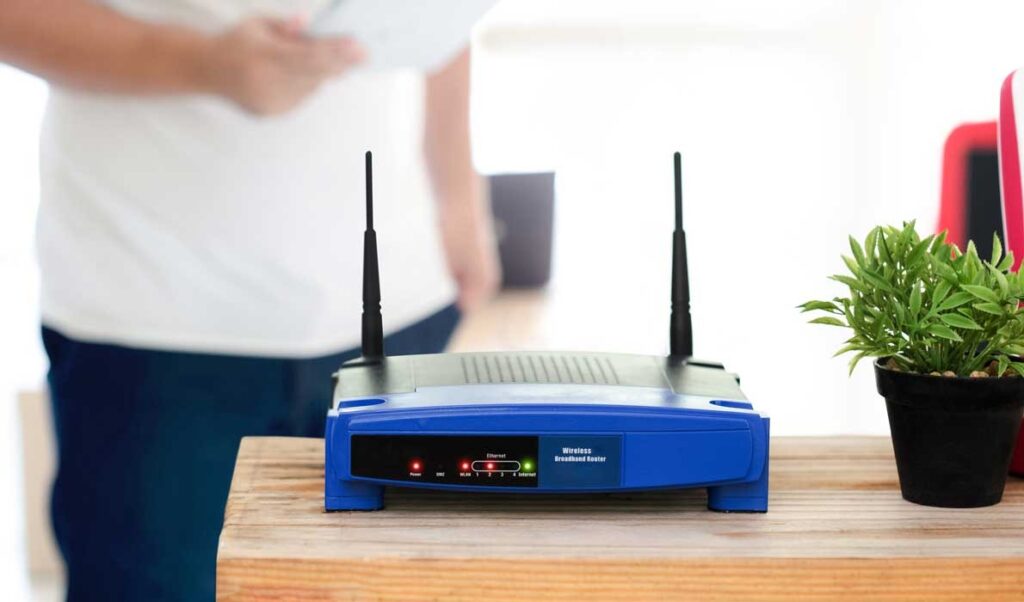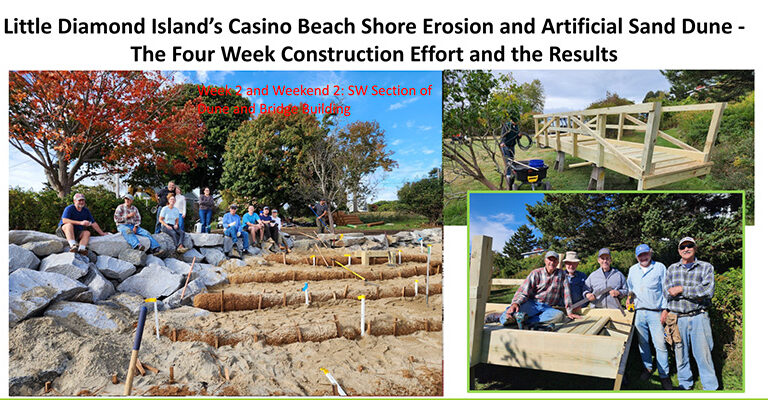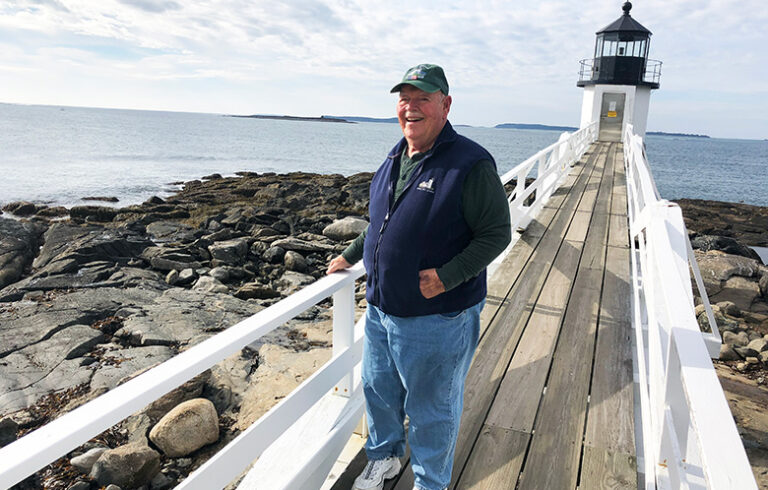Brenda Hunt lives in a shipping container on her five acres of land in Blue Hill. But her rugged dwelling is equipped with fiber optic cables, which are expected to be able to deliver highest-speed internet for many years.
The internet has reached more people in the U.S. now than ever before, largely due to programs like the federal Affordable Connectivity Program (ACP).
Hunt’s life has been dramatically enhanced through broadband—the term for high-speed internet—made accessible through the ACP. After a year of assisting low-income folks get internet in their homes, the ACP has lost its funding and will cease operating by May.
Tough decisions about home internet service loom for many.
She has learned more about herself and her community by using the internet to engage online.
As the internet became ubiquitous in our personal and work lives, many federal and state programs were developed to get every American connected. Total connectivity occurs through two channels: infrastructure and digital equity.
“Broadband infrastructure” refers to the actual cables and hardware. “Digital equity” is making sure everyone has access to and the understanding of how to use broadband.
Some of the largest barriers to digital equity are lack of affordable internet service plans, lack of devices, and lack of interest. The ACP, the largest affordability program in U.S. history, was created after the COVID pandemic revealed the extent of the digital divide.
In Maine, more than 95,800 households have benefited from the ACP.
“ACP enrollees include young learners, grandparents, and everyone in between,” says Geoffrey Starks, commissioner of the Federal Communication Commission. “To put it plainly, ACP is the most effective program we’ve ever had in helping low-income Americans get online and stay online.”
Congress’s Digital Equity Act, part of the 2021 Bipartisan Infrastructure Law, identifies several populations that need more support in achieving digital equity. These include low-income households, older adults, the incarcerated or formerly incarcerated, veterans, individuals with disabilities, individuals with language barriers, members of racial and ethnic minority groups, and those who reside in rural areas.
Hunt falls into a few of these identified populations and was able to get the ACP discount of $30 off her monthly internet bill. It took a friendly neighbor who leads the Peninsula Utility for Broadband (PUB) group to convince her to get fiber optic connections to her home and sign up for the ACP.
Butler Smythe leads the PUB, an advocacy group aspiring to connect the Blue Hill Peninsula, including Deer Isle and Stonington, with fast, flexible, affordable, and reliable broadband internet. Smythe also happens to live near Hunt, and one day decided to drive down her dirt road to tell her how broadband could improve her life.
Hunt said many people she knew were hesitant; registering for government services can be very intimidating.
In Maine, more than 95,800 households have benefited from the ACP.
“People didn’t know about the program. They were skeptical,” she explained. “You have to be careful when you are low income because you do not have the confidence or the right to this or that.”
With high-speed internet Hunt saw improvements in her quality of life. She was able to swap her satellite dish for a smart TV. Instead of paying for cable, she now watches on subscription services such as Netflix or Hulu. She also uses her smart TV to watch free YouTube videos on everything from gardening to mental health.
She has learned more about herself and her community by using the internet to engage online. She also canceled her landline and uses Wi-Fi to make phone calls. Her relationship with her grandchildren has improved because she can call them any time without worrying about dropping the call. She can also research what her grandchildren are interested in these days.
Hunt now sees having good connectivity as a high priority. She says she will “have to shuffle around a couple of things” to stay connected.
According to the Benton Institute for Broadband & Society:
• Nationwide, 49 percent of ACP households are subscription vulnerable, meaning they find the internet difficult to fit into their monthly budgets and are on the edge of disconnection
• 68 percent of ACP households reported they had inconsistent or zero connectivity prior to ACP, and 80 percent cited affordability as the reason for this lack of connectivity
The closure of the ACP will not only affect those with low income but will also affect the reach of infrastructure funding such as the $270 million coming to Maine through the Broadband Equity Access and Deployment program. ACP makes it less risky for internet service providers to build out to rural areas, because more of the serviceable population can afford to subscribe.
According to the Benton Institute, ACP creates $16.2 billion in annual benefits to users of the service subsidy, nearly twice the $8.4 billion it costs for the $30 monthly subsidy.
President Biden has asked Congress to fund ACP as part of his budget, and recently called again on Congress to extend its funding. There is a bipartisan, bicameral effort to fund ACP through the proposed Affordable Connectivity Program Extension Act.
Advocates argue that connectivity promotes civic engagement, education, and healthy communities.
“We encourage folks to get involved however they can to support our neighbors who will be most harmed if this program ends,” said Christa Thorpe, a community development officer at Island Institute, which has been supporting coastal communities with broadband and digital equity planning since 2016. Among the help that may be offered is “lobbying our federal delegation, approaching your town about digital equity planning, or volunteering at places like libraries that are on the front lines of helping close the digital divide,” Thorpe said.
In Blue Hill, Hunt will continue with her current internet plan.
“Having internet is more important than having a car these days,” she said.
Amber Blum is an associate community development officer with Island Institute, publisher of The Working Waterfront. She may be contacted at ablum@islandinstitute.org.





